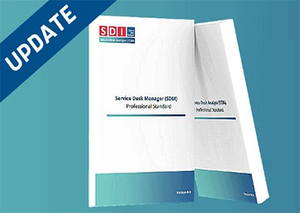
Blog post by Zena Everett, Executive Coach and Speaker on Career Strategy & Crazy Busy (business/personal productivity). Zena will join us as a keynote speaker at SDI20, which will be held at the Birmingham Hilton Metropole on 15th-17th March 2021. To find out more about the event click here.

“My team would be great, if it wasn’t for the people in it’ said a frazzled manager recently, ‘why can’t they just get on with the job, like I did when I joined the business?”
Getting people’s performance on track can be a huge headache. You can manage projects, but you have to lead people.
How do you delegate effectively, striking the fine balance between giving them plenty of autonomy and trusting them to do the job properly, or checking their progress and being accused of micro managing? Sometimes it is easier to do the work yourself, so at least you know it will be done properly.
Here’s all you need to know to give the right leadership to the right people at the right time, depending on their will (motivation) and their skill (competence).
Every stage assumes a clear vision from you, explicit performance standards and clear job descriptions. You start with firm direction and move into more of a coaching style only when the person is ready: i.e. they have the skills to come up with their own answers.
Stage One – Direction: low skill, low will
First build the will by explaining what you want to be done and why. This might be obvious to you, but you have to get emotional buy-in from everyone. ‘This is what we are going to achieve here.’ Excite them by developing a vision of what great performance looks like.
Set the standards and ground rules high so they feel proud to work for you and excited by how good they will become under your leadership. There needs to be complete role clarity on their job description and how their performance will be measured, so they know when they have done a good job. Everyone goes to work with the intention of doing their best, but managers and their own minds can get in the way sometimes.
Don’t feel embarrassed about being directive. You can’t coach them until their skills improve.
Build their skill by training them, breaking tasks down into quick wins. Provide regular feedback and explain specifically what they did well or what needs to be done differently.
Don’t sandwich feedback old-style, or they will always look for the ‘however’ when you praise them and miss the good news. If you regularly give positive feedback, then negative feedback is no big deal: it’s all handed out with a positive intention and is action/behaviour related, never personal. Talk about their behaviour, never their character.
Supervise closely with tight deadlines and put in milestones to check performance so there are no nasty surprises. If you feel you are over-communicating you are probably doing it right.
Stage Two – Guidance: their motivation is high now, but their skill levels are still low
You’ve lit the fire, now get them fully competent. Create an environment where risks can be taken and mistakes can be made; that’s how people learn.
Maintain regular check-ins, both formal and ‘how’s it going’ so they feel they can approach you if they are unsure of what to do. Relax control slowly, as their confidence and skill improves and you can give them more rope.
Get them to start thinking for themselves by asking them for their preferred options for a task first, then say ‘and other things to think about are…’ and add in your ideas.
Keep tight deadlines and milestones in between to monitor task performance, ‘the deadline for this is Friday, let’s grab ten minutes on Wednesday morning to talk about how you are getting on.’
Get a coach to help you develop your own coaching skills.
This phase can be quite draining for managers as you feel you are being pulled in all directions. Don’t fall into the easy trap of doing your own work after hours because you have been responding to questions all day. You can have an open door but not between certain hours for example.
You might want to schedule time to do your own deep working when you can’t be interrupted: escape to a meeting room if you need to get your own stuff done. Model the habit of good boundary keeping by managing your own time effectively.
Show your own boss that you are capable of managing more direct reports by coping well with the people you’ve already got.

Stage Three – Energise: their skills are high but their will seems low
They know what to do but don’t seem to be doing it any more.
Nip problems in the bud early, when you have spotted unhelpful behaviour no more than three times: one or two blips could just be off-days, but three is a pattern forming. Don’t wait for a performance appraisal; deal with it when it happens.
Identify the reason for the lack of motivation, identifying specific behaviours and avoiding personal attacks. ‘I’ve noticed that you were distracted in that meeting, checking your emails and not paying attention. I wondered what’s going on?’
Question them to get to the bottom of the issue – is it the task, management, team, personal issues, lack of confidence, fear of failure, procrastination, stress, environment etc.
Listen to them; don’t interrupt them when they talk. They know their problem so will know the best solution also. Get them to take responsibility for their performance, although you may have to revert to more direction and tighter management until performance improves.
Make a plan and schedule time to monitor progress. Remind them of your shared goals and purpose and their part in it. Break the tasks down if they feel overwhelmed.
Escalate to formal performance-management if necessary.
Stage Four – Delegation: high skill, high will
Congratulations, you’ve got them over the line.
Now give them the freedom to get on with the job and don’t over manage them. Set them objectives, but let them decide the method.
It’s tempting to just let them get on with it and put your energy into managing your Stage Threes. Managers can spend more time and energy on their weakest links than on their succession plan: their talent. Don’t ignore them or assume they don’t need feedback any more. These are your rising stars and need nurturing.
Give them more stretching projects if you can and be sure to have scheduled career conversations to find out what they enjoy doing and what their ambitions are. You might not be able to provide everything they need, but asking the question goes a long way. They might want to build a team, become more of a technical expert, get involved in other functions of the business or discretionary projects.
Continue to praise and thank them when they exceed performance standards. Involve them in decision-making: ‘I’d welcome your input into x.’ Revisit their job description if necessary to reflect their enhanced responsibility.
Ensure they don’t get over-whelmed or bored, that they are managing their time and energy and that they also know what high performance at their level looks like.
About Zena
“I used to run a successful recruitment business, which recruited other recruiters (yes, really). We found global talent for our clients, who found global talent for theirs.
I became fascinated by these questions:
- Why do some people become more successful than others?
- Where does motivation come from?
- Why aren’t people as confident on the inside as they look on the outside?
- How do you make yourself the obvious choice for promotion, get headhunted or reach the top table?
- How do the most successful people focus their time and energy?
I wanted to find out the answers…
I sold my business, retrained in organisational psychology and career counselling, and then qualified in coaching psychology.
I realise now that success largely comes down to two factors: crystal clear goals and a learned ability to cope with the obstacles that get between us and what we want to achieve (often obstacles of our own making).
My philosophy for career success is Mind Flipping: to flip your focus away from yourself and instead look outwards on the problems you, uniquely, can solve for others. It’s not about YOU!
Then I realised that having helped someone find great work, they would inevitably tell me that they spent most of their time on Fake Work and very little time being effective, never mind great. I call this PQ, Practical Quotient™- the vital ability to prioritise effectively and get things done.
I wrote my Crazy Busy™ sessions to boost team and personal productivity. I’m Crazy Busy doing Crazy Busy programmes in organisations, with groups of six to 600 people.
I’m a regular media contributor and broadcaster (BBC Radio 4’s Today programme, Nick Ferrari’s Breakfast show on LBC, BBC London, Sky News, London Evening Standard, www.high50.com, Mumsnet’s Workfests, the Financial Times, Vice, Changing Careers, Recruiter, The Guardian Careers section, Essentials Magazine, Stylist, Daily Telegraph, Refinery29, The Pool and Cosmopolitan amongst others).”


























